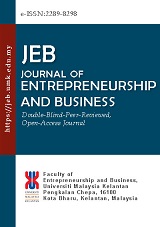Macroeconomic Determinants of FTSE KLCI Volatility: Evidence from 2006 to 2023
DOI:
https://doi.org/10.17687/mb27gx87Keywords:
Gross Domestic Products, Consumer Price Index, Consumer Confidence IndexAbstract
This study examines the impact of key macroeconomic variables: Gross Domestic Product (GDP), Consumer Price Index (CPI), and Consumer Confidence Index (CCI) on the volatility of the FTSE Bursa Malaysia Kuala Lumpur Composite Index (FTSE KLCI) from 2006 to 2023. As Malaysia shifts towards a more market-driven financial system, understanding how economic fundamentals influence market behavior is essential. Using a random-effects panel regression model, the study analyses 16 years of data. Results show that GDP and CPI significantly affect FTSE KLCI volatility, indicating that real economic activity and inflation are major drivers of investor responses. CCI, though significant at the 10% level (marginal effect), also influences market fluctuations during uncertain periods. These findings support the semi-strong form of the Efficient Market Hypothesis (EMH), suggesting the market reflects available economic information. The study offers valuable insights for policymakers and investors aiming to understand and manage volatility in Malaysia’s emerging capital market.








